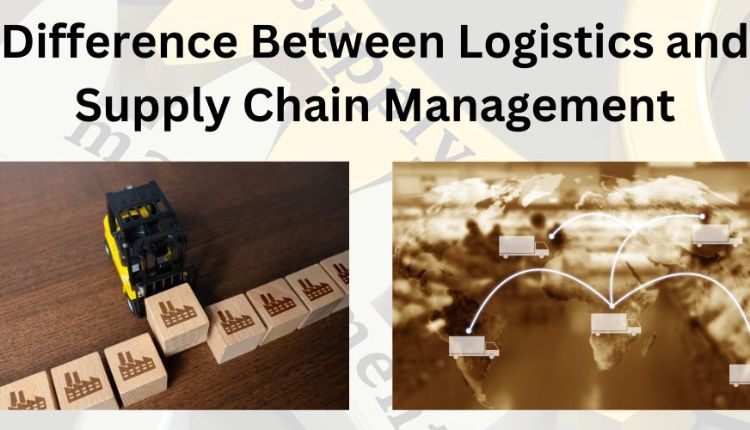Logistics and supply chain management are confused and interchangeably used. But they are quite different since supply chain management encompasses large arena of activities while logistics management is just a part of the activities that are a part of supply chain management. In this article, we will understand both the terms in detail along with their differences.
What is Logistics Management?
A reliable logistics services provider defines it as an art and science of coordinating the movement of products from point A to point B, while ensuring efficiency as well as cost-effectiveness at every step. It covers several activities, starting from transportation and storage to inventory management and distribution activities. Logistics bridges the gap between production and consumption while optimizing the flow of products from end to end.
What is Supply Chain Management?
Supply Chain Management (SCM) has a broader perspective to the above, which means, it encompasses the entire network of suppliers, manufacturers, distributors, retailers, and ultimately, the final consumers. SCM operates the entire product lifecycle, starting from the supplier’s stage through production, distribution of those products, and delivering it correctly. It involves strategic planning, collaborating, as well as coordinating that ensures seamless connectivity and synchronization through all elements of the supply chain.
Difference Between Logistics and Supply Chain Management
1. Scope and Focus
Logistics: Primarily convers the movement and storage of products, transportation, warehousing, and distribution of those products. It acts as a smaller part within the broader term of supply chain management.
Supply Chain Management: Covers an extensive spectrum, it integrates various processes that start from the procurement of raw materials from suppliers to the delivery of the final product to the end user.
2. Integration and Collaboration
Logistics: Generally, it operates internally in the organizational department. It focuses on individual functions like transportation or inventory management for the organization itself. Here, collaboration is more internalized, i.e.; inside the organization.
Supply Chain Management: Involves cross-functional integration as well as collaboration among multiple stakeholders of the organization. It tries to optimize collaboration within the company and with the suppliers, distributors, and other stakeholders, which fosters a holistic approach.
3. Time Horizons
Logistics: Often operates on an immediate and short-term basis, that ensures goods move efficiently within the operational cycle internally.
Supply Chain Management: Works on a long-term basis, it emphasizes on strategic planning and continuously improve their performance over an extended period. SCM is aimed to build a sustainable long-term relationship while optimizing processes for lasting efficiency.
4. Decision-Making Levels
Logistics: Primarily, logistics involves taking tactical and operational decisions that focuses on day-to-day activities like route planning or storage, warehouse management and more.
Supply Chain Management: It engages in decision-making and addressing higher-level concerns like who will be the supplier, designing a network, and an overall supply strategy for the organizational products.
5. Goal and Objective
Logistics: It is aimed to enhance the efficiency of multiple individual tasks within the supply chain while ensuring that goods are correctly transported and stored.
Supply Chain Management: It is aimed towards overarching efficiency with effectiveness though the entire supply chain, this means aligning operational activities along with organizational objectives and keeping in mind customer demands.
Conclusion
So, logistics focuses on efficiently moving goods, while supply chain management focuses on orchestrating the entire journey of the organizational product from inception to the final delivery. Both are inseparable elements of the business, each playing a unique role while ensuring the seamless operations. As businesses evolve, understanding the distinctions between logistics and supply chain management becomes paramount, enabling organizations to optimize their operations and stay agile in a dynamic marketplace.

